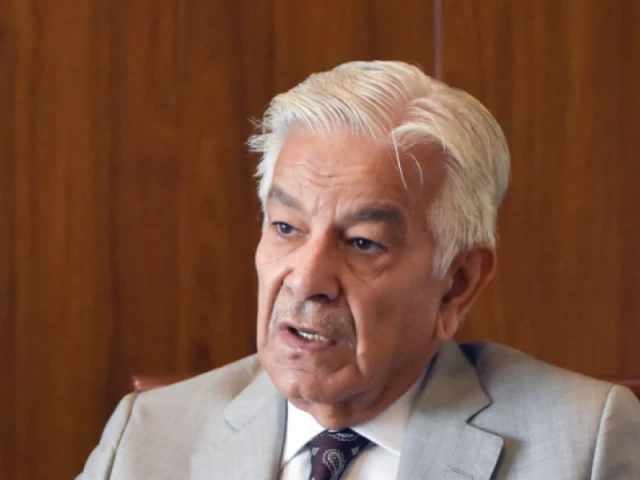ISLAMABAD:
The long-desired hybrid system now seems to have fully matured. Surprisingly, it’s not a secret anymore but being openly endorsed and celebrated. With a sitting federal minister praising the hybrid system as a success model and the military chief receiving global spotlight which is usually reserved for elected leaders, it seems clear that the powerful stakeholders are no longer behind the curtain but are now center stage.
“The revival of the economy, India’s defeat, improvement in ties with the US, all these revolutionary changes were made possible by the cooperation between PM Shehbaz Sharif and Field Marshal Asim Munir and the excellent relations between Islamabad and Rawalpindi,” Defence Minister Khawaja Asif reportedly wrote on X a few days ago.
The minister’s recent remarks may have raised eyebrows, but to some political analysts, they merely confirmed what has long been obvious: the hybrid regime is not just real; it’s thriving. Ironically, hybrid system was once a term used cautiously but is now being presented as a practical solution to Pakistan’s political and economic instability, among other things.
With increasingly blurred civilian and military roles, they say, the hybrid model appears to have taken a more formal and accepted shape where political legitimacy partially comes from the ballot box and largely from how close one is to Rawalpindi.
Once PTI championed it and now the PML-N and PPP believe that their survival lies not in opposing the new system but becoming a part of it. Apparently, decades of confrontation, disqualification, jails, exile and political engineering seemingly have simply gone to waste.
To the question if it was a permanent shift, renowned policy analyst and journalist Raza Rumi said that permanence is a fragile word in Pakistan, adding “but yes, what we are witnessing is not just a moment — it’s the slow cementing of a hybrid power structure.”
For decades, the eminent analyst said, the military has been the “guardian” of national interest, but now the lines are no longer blurred — they are being redrawn. “Civilians remain in office, but power increasingly lies elsewhere,” Rumi said, “The hybrid model is no longer an ad hoc arrangement; it is an institutionalised reality. It has uniforms, protocols, and now even diplomatic portfolios.” Whether this is permanent, he said, depends not just on domestic dynamics but also on how much the people and institutions are willing to contest — or internalise — this imbalance.
To the question about Field Marshal’s solo meeting with US President Donald Trump, Rumi said that titles matter — especially when they evoke authority beyond the battlefield. “A “Field Marshal” is not just a rank; it’s a statement,” he said. He explained that it carries historical resonance, strategic stature and in Pakistan’s case, a nod to where real decision-making often resides. “So when such a figure holds a solo meeting with Donald Trump, bypassing the usual diplomatic playbook, it’s not entirely surprising,” Rumi said. One could even argue that in a region where security concerns often define foreign policy, he added, the presence of a military figure at the top table is pragmatic.
But let’s not pretend it’s benign, Rumi continued, the fact that the elected Prime Minister had to issue a follow-up statement — reiterating his invitation to Trump and expressing hope for a meeting “at the earliest convenience” — reveals the uncomfortable truth: civilian leadership is performing the role, but not commanding the spotlight. “The choreography of power is increasingly overt,” he said, adding Pakistan’s international engagements now often reflect the hybrid order at home, where optics and authority are carefully managed — and not always by those with electoral mandates.
President of the Pakistan Institute of Legislative Development and Transparency (PILDAT), Ahmed Bilal Mehboob, thinks that the major reason of current perceived “military ascendance” is the bitter confrontation between PTI and the government and anti-military leadership posture of PTI. “As these confrontations die down through dialogue & tolerance of political differences,” the PILDAT chief, who keeps an eye on the political developments in and outside Parliament said, “I think that the situation will normalise.”
Commenting on Field Marshal’s one-on-one meeting with Trump and civilian authority, Mehboob said that the recent Trump-Munir meeting is extra-ordinary and unprecedented, saying it indicates the increasing importance of Pakistan military in the context of geo-political environment & recognition of Pakistan military’s recent campaign against terrorists, including the arrest and transfer of a terrorist allegedly involved in killing Americans in Afghanistan. “I hope this will be only an exceptional development but President Trump is known for taking unconventional steps,” he said.
To the question if political parties were embracing hybrid model out of necessity or choice and what kind of elections should people expect in future, Mehboob while replying in the negative to the first question said that the political parties were trying to live with the current realities hoping that these are temporary conditions. “It is imperative that political parties including PTI should hold serious dialogue focussing on creating necessary conditions for free & fair election in the future,” he said.
In addition, Mehboob concluded by saying that if the political parties focus on this dialogue and take a ramp down to de-escalate the prevailing confrontation, there will be greater chances of a fair election in future.

